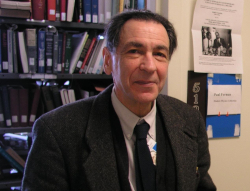
Curator Emeritus, Division of Medicine and Science, National Museum of American History, Smithsonian Institution
An Empirico-Critical Examination of “Vienna Indeterminism”
“Weimar Culture, Causality, and Quantum Theory, 1918-1927” was published in 1972 in the third volume of Russell McCormmach’s Penn-sponsored annual, Historical Studies in the Physical Sciences. Often deprecated, especially by physicists and philosophers, “Weimar Culture, Causality, etc.” is never cited by historians of science without some signaling of reservations. Yet for thirty years “the Forman thesis” remained without a historiographic alternative, i.e., an alternative founded in extensive historical research in a wide range of relevant sources. Twenty years ago, however, a counter-thesis, “Vienna Indeterminism” was launched and, in recent years, has been cited ever more widely and affirmatively by historians and philosophers of physics. By claiming that indeterminism did not enter science after the First World War, nor, as the Forman thesis has it, from the wider culture of German Central Europe, but was an autochthonous product of research and reflection by some physical scientists in pre-World-War-I Vienna, “Vienna Indeterminism” not only seeks to revindicate the intellectual autonomy of the physical sciences, but also to vindicate them as sources of modern culture. My project, then, is to subject “Vienna Indeterminism” to the sort of critical, evidence-based, examination that in postmodernity has, sadly, come to be regarded as impertinent where ideological preferences, patriotic attachments, even merely careerist inventions, are engaged.